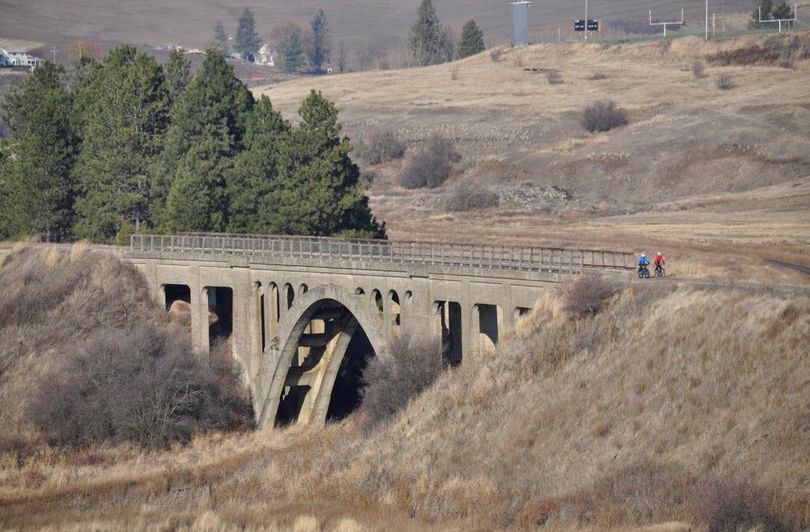Washington Senate to John Wayne Trail: No bond money for you

Parks are popular with politicians, so much so that they may rank just slightly behind motherhood, apple pie and smiling babies on their list of “Things we really, really like.”
But like those other things – Are these moms scamming the welfare system? Did the apples come from Washington? Does this baby need a diaper change? – there is limit to the love.
That was obvious recently when the Senate took up a plan to sell bonds and spend a total of $500 million over eight years restoring the state parks, trails and recreational properties that have fallen on hard times since the recession. Some lawmakers nearly waxed poetic about time at state parks as children, camping or munching s’mores around the fire.
There was the occasional discouraging word, with some Democrats wondering if the state should be spending money on parks when it needs to spend big bucks on school construction. But almost no debate of any substance in the Senate passes without someone reminding the body of its obligation to the state’s school children and asking if they oughtn’t be tending to that instead of the thing they’re debating.
Senators shouldn’t be pitting parks against schools, Sen. Maureen Walsh, R-Walla Walla, said. Parks are “part of our education system” and good for business and kids.
But included in the bill was evidence there is at least one Eastern Washington recreational facility that Republicans really, really don’t like. Western Washington Democrats were eager to point that out. Republicans amended the proposed legislation with a paragraph that bars any money from being spent fixing up the John Wayne Pioneer Trail, which meanders some 250 miles from the Cascades across central and eastern Washington to the Idaho border north of Tekoa. Not a dime. And that goes for any other monikers the trail might go by, such as the Iron Horse or Columbia Plateau, the bill makes clear.
The trail has become a bone of contention between townspeople at various points throughout the route and landowners along some of its open expanses.
The former want more folks hiking, biking or riding horses on the trail, who might then stop in town for something to eat or drink or a place to spend the night. The latter are not happy with some users who leave garbage or damage in their wake. Lawmakers from the area have generally sided with the landowners. An effort to quietly sell off a portion of the trail in 2015 went over like a tactical nuke in Tekoa and nearby towns, but was canceled when language in legislation incorrectly described the trail.
Sen. Christine Rolfes, D-Bainbridge Island, insisted the trail is a “gem”, well used as far east as the Columbia River, but beyond that point access is limited and the trail difficult to use. Under the current bond legislation, that won’t get any better, she said.
“An entire generation of Washingtonians will never have access to the trail because this Legislature makes it so difficult to use,” Rolfes said.
Sen. Judy Warnick, R-Moses Lake, said a lot of that trail runs through her district and the areas west of the Columbia are heavily used, well maintained and have agreements with adjacent landowners. East of the river, which some of her colleagues are “so hung up on today” is different, she said, and sometimes “not very friendly folks” use the trail.
“It’s going to take more money than we have and more agreements with the neighbors,” Warnick said, adding that the Legislature could revisit the issue and change its mind in the future.
Just seems wrong to short the John Wayne, said Sen. Dean Takko, D-Longview, and not in keeping with the Legislature’s oft-professed “one Washington” spirit. He’s been on the trail, thinks it gets plenty of use and “with the right investment it could be used even more.”
The bill passed 36-12, and was sent to the House.
